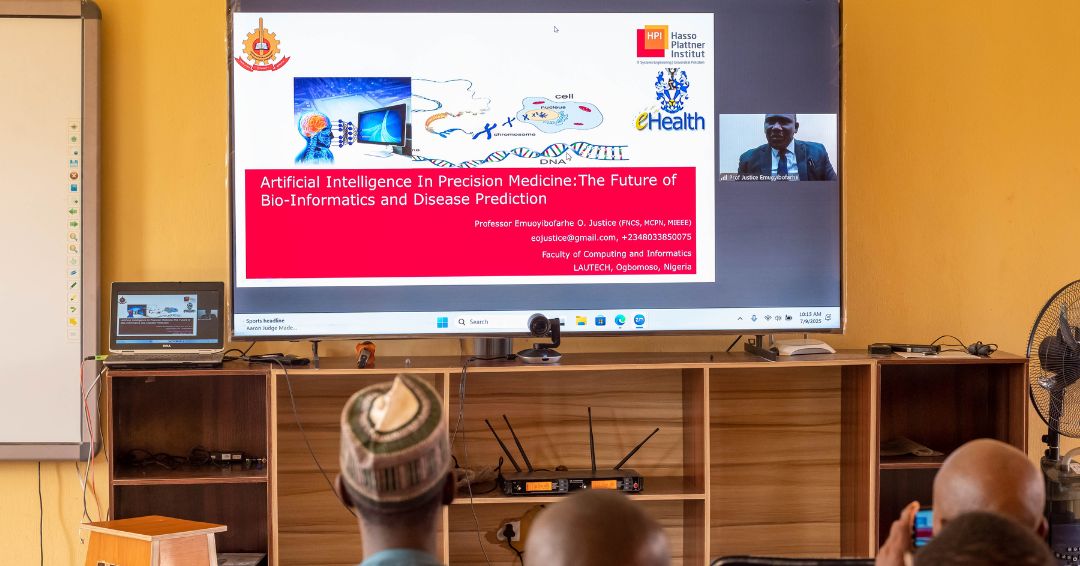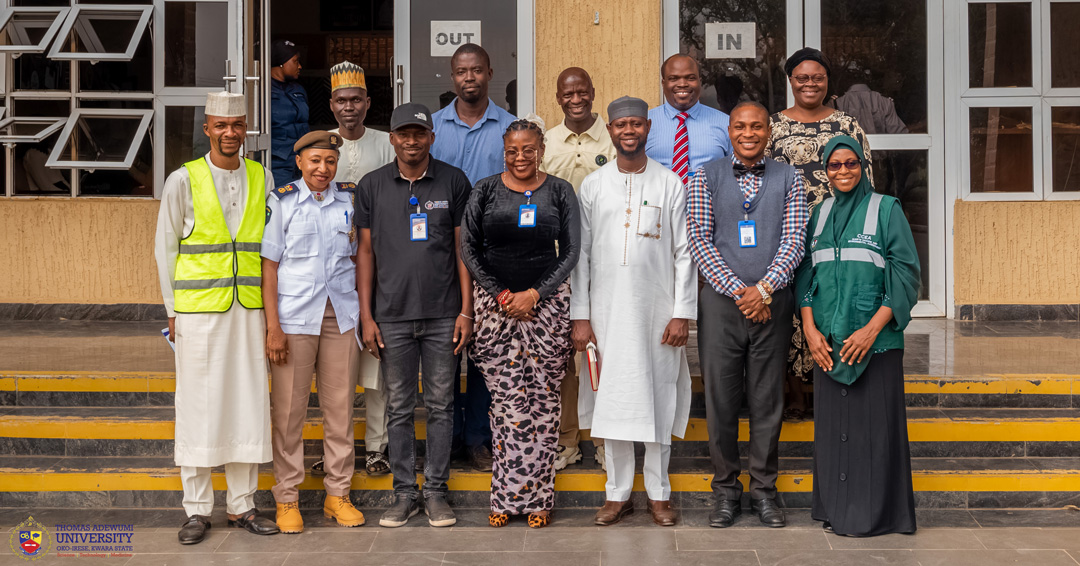In line with its mission to foster innovation and research across emerging technologies, the Faculty of Computing and Applied Sciences, hosted a thought-provoking lecture tagged: “AI in Precision Medicine: The Future of Bioinformatics and Diseases Prediction.”
Held at the University Virtual Lab, the event drew wide participation from faculty members, students, and external guests who joined virtually. The seminar explored how AI, bioinformatics, and machine learning are transforming disease detection, treatment personalization, and medical research globally.
Delivering the opening remarks, the Acting Dean of the Faculty, Dr. Ezekiel Olatunji, welcomed attendees and introduced the lecture’s theme as timely and relevant to the faculty’s vision. He encouraged participants to engage with the presentation as it would expose them to new frontiers in medical computing.
The guest speaker, Professor Justice O. Emuoyibofarhe, a distinguished Professor of Computer Science at Ladoke Akintola University of Technology (LAUTECH), Ogbomoso, and Director of LAUTECH Software Engineering Institute, led the session. In his presentation, Professor Emuoyibofarhe, a Fellow of the Nigeria Computer Society (FNCS), Member of the Computer Professionals Registration Council of Nigeria (MCPN), and Member of IEEE (MIEEE), discussed the dynamic role of AI and digital transformation in healthcare.
He examined critical concepts including Precision Medicine, Cancer Genomics, DNA Sequencing, Bioinformatics, and Big Data Analytics. Emphasizing that healthcare is undergoing a digital revolution, he defined disruptive technologies as innovations that significantly alter the way industries operate. He positioned Artificial Intelligence and Big Data as catalysts for what he termed Health 4.0, a phase characterized by personalized, participative, predictive, preventive, and precision-driven medical care.
Key topics covered included:
-
AI applications in drug discovery, diagnostics, and robotic surgery.
-
Machine learning’s role in disease prediction and genomic analysis.
-
The significance of DNA sequencing and computational biology.
-
Advanced digital health technologies like tele-radiology, mHealth, and virtual nursing assistants.
-
Integration of AI, 5G, and edge computing in modern healthcare systems.
The lecture further introduced attendees to molecular computing, sequence alignment tools, and how machine learning models are now used to uncover genetic variations and patterns in disease progression.
Following the lecture, an engaging Q&A session allowed participants to interact with the guest speaker, clarifying concepts and discussing future research applications.
In her closing remarks, the Vice-Chancellor, Professor Francisca Oladipo, commended Professor Emuoyibofarhe for an impactful presentation. She emphasized the importance of multidisciplinary collaboration in research, citing the seminar as a model for how computing and life sciences can converge to solve real-world health challenges. Prof. Oladipo congratulated the Faculty for organizing a seminar that resonates across disciplines and reiterated the university’s commitment to nurturing innovation, interdisciplinary research, and academic excellence.
This faculty seminar series is one of the university’s initiatives to drive innovation and scholarship in frontier technologies, as TAU continues to position itself as a thought leader in computing, applied sciences, and beyond.


